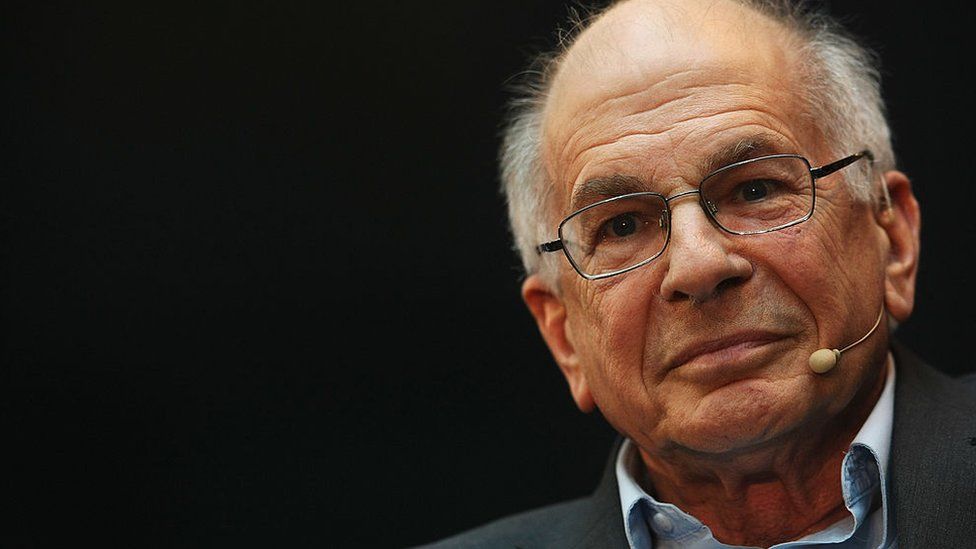ARTICLE AD BOX
 Image source, Getty Images
Image source, Getty Images
Nobel prize-winning psychologist Daniel Kahneman has died, aged 90.
He became synonymous with behavioural economics, even though he never took a course of economics.
Kahneman wrote the best-selling book Thinking, Fast and Slow. It debunked the notion that humans are rational beings who act out of self-interest - they act based on instinct, he argued.
His death was announced by Princeton University where he had been working since 1993.
"Danny was a giant in the field, a Princeton star, a brilliant man, and a great colleague and friend," said prof Eldar Shafir.
"Many areas in the social sciences simply have not been the same since he arrived on the scene. He will be greatly missed."
Kahneman was born in Tel Aviv, Israel, in 1934, and spent much of his early years in Nazi-occupied France, where his father worked as chief of research in a chemicals factory.
The family moved to what was then British-ruled Palestine in 1948, just before the creation of the state of Israel.
Kahneman graduated from the Hebrew University of Jerusalem in 1954, and went to the US four years later to begin a doctorate in psychology at the University of California Berkeley.
Kahneman returned to Jerusalem in 1961 to begin his academic career as a psychology lecturer, where he met Amos Tversky - a cognitive psychologist with whom he would go on to win the Nobel Prize for Economic Sciences in 2002.
His work with Tversky would go on to form the basis of the best-selling book Thinking, Fast and Slow, published in 2011.
The book explained the psychology of decision-making. It outlines two systems that drive the way humans think and make choices - the fast, intuitive, and emotional - and the slower, more deliberative, and more logical.
The book argued that most of the time, our fast, intuitive mind is in control, and takes charge of the decisions we make each day - rather than the deliberative, logical part of our minds - and this is where mistakes can creep in.

 9 months ago
40
9 months ago
40








 English (US) ·
English (US) ·